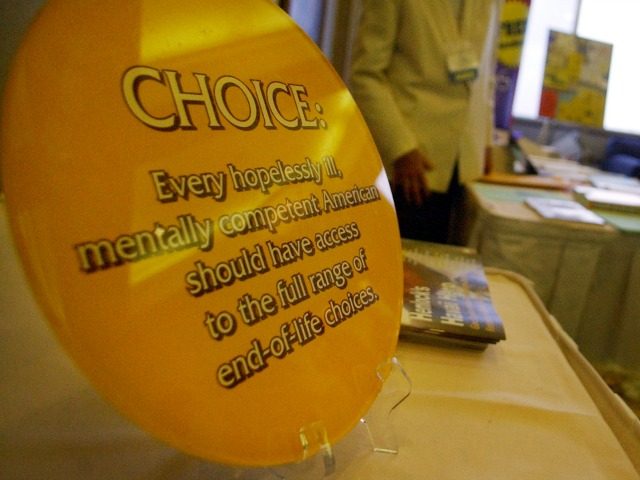A bill allowing doctors in Connecticut to prescribe lethal drugs to terminally ill individuals has failed to garner enough support to make it out of committee.
“This is as close as we’ve ever gotten,” Democrat state Rep. Jonathan Steinberg said, reported CT Mirror. “You could argue it was nip and tuck for a while. But we didn’t have the votes.”
The Westport lawmaker added Republicans gave no support to the legislation and that, since several members of the Public Health Committee firmly oppose the bill, its chances of success for next year are also very low.
“Modifying the bill in and of itself would not necessarily change any votes,” Steinberg said. “So I think we would probably be looking to a new legislature.”
HB 5898– which would have allowed doctors to prescribe lethal drugs to individuals who are told they have six months or less to live, or are in extreme pain – has now been introduced five times since 2013 in Connecticut, but has failed to make it each time to the state House or Senate floor.
Disability-rights group Second Thoughts CT, which opposes the legalization of assisted suicide, tweeted “strong opposition from disabled people like us” was the primary reason for the defeat of the bill:
The Charlotte Lozier Institute tweeted its praise of Second Thoughts CT member Cathy Ludlum, who testified those with disabilities are the “collateral damage” of assisted suicide laws:
Ludlum said:
Nobody wants people to be in pain, desperate, and feeling that they have no control over what is happening in their lives. Believe me, those of us with disabilities know what it is to feel like you have no control.
But the harsh reality is that we will be the collateral damage in any formalized death-by-choice system. Many of us with severe and obvious disabilities are already too frequently thought of by medical practitioners as having reached a final stage, where death might be expected in the near future.
According to CT Mirror, the Connecticut director of Compassion &Choices – a national lobbying group that promotes assisted suicide bills throughout the country, said the failure of the bill to move out of committee was “beyond disappointing.”
“While many of the supporters of the bill who brought their stories to the public hearing last month will get no relief, let’s be clear: This bill will become law in Connecticut someday soon,” Tim Appleton said. “After two decades of experience with the law in Oregon, without any of the dire consequences predicted by opponents, legislatures across the country are passing aid-in-dying bills. Connecticut will do the right thing.”
However, Peter Wolfgang, who heads Family Institute of Connecticut, observed the bill “fails every year because there is no way you can ever make this right.”
“It is never right to license doctors to prescribe suicide as a treatment and to grant immunity to the people that help you kill yourself,” he said.
Assisted suicide is currently legal in Washington, DC, California, Colorado, Hawaii, Montana, Oregon, Vermont, and Washington.
Maryland rejected an assisted suicide bill last week.
According to the Washington Free Beacon, Matt Valliere, executive director of the Patients’ Rights Action Fund, reacted to the defeat of the Maryland legislation by saying all bills that would make assisted suicide legal “make for dangerous public policy, especially for persons living with disabilities, the terminally ill, people of advanced age, and those who are at an economic disadvantage.”
“They are the most likely to suffer because of mistakes, coercion, and abuse—as we have seen happen in places that do allow assisted suicide,” he noted.
New Jersey’s legislature passed an assisted suicide bill last week and Democrat Gov. Phil Murphy said he intends to sign it into law. However, Republican lawmakers are urging Murphy to make several late changes to the legislation, including increased penalties for abusers of the future law.

COMMENTS
Please let us know if you're having issues with commenting.